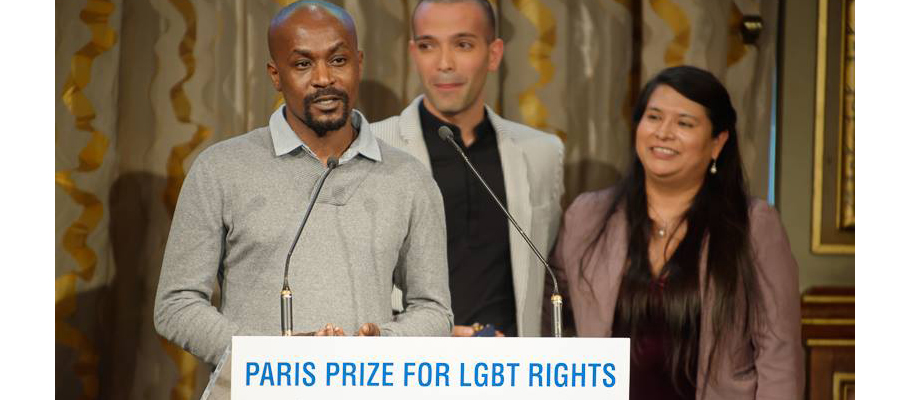Kenya’s National Gay and Lesbian Human Rights Commission was last week awarded the Paris Prize LGBT Rights Awards where they had been nominated in the International category. The award was received by Eric Gitari, the NGLHRC’S Executive Director.
The Paris Prize for LGBT Rights is a new annual event that will be held every 17th May to reward the action of those who defend and promote LGBT + rights in France and around the world. The occasion which was this year’s World Day Against Homophobia and Transphobia celebrations, was witnessed by Anne Hidalgo (The Mayor of Paris) who presented the awards with the help of the Deputy Mayor of Paris; Hélène Bidard , and Jean-Luc Romero , deputy mayor of the 12th district of Paris and regional councilor.
The award comes after NGLHRC’s landmark victory where Kenya's Court of Appeal in March ruled that the use of forced anal exams used to determine whether gay men engaged in sex is illegal.
Case History
The Court of Appeal at Mombasa was hearing a landmark case that, the National Gay and Lesbian Human Rights Commission, had brought on behalf of two young men arrested in 2015 on suspicion of engaging in homosexual activities —a felony in Kenya — and distributing pornographic material. In pre-trial proceedings, a magistrate ordered them to undergo HIV tests and to submit to anal examinations — a practice, common in eight African countries, that violates several international treaties and covenants and has been condemned as amounting to torture or ill-treatment by the UN special rapporteur on torture and cruel, inhuman or degrading treatment.
In 2016, challenging these methods of collecting evidence, Gitari and his colleagues argued, unsuccessfully, that their clients’ rights to privacy and protection from self-incrimination had been violated. “The [trial court] said that as long as homosexual sex is illegal, there is no other way to prove that there was anal penetration than to subject that person to a forced examination,” he explains. “This case [set] a dangerous precedent because there was a very arbitrary application of the criminal law, not just by the police but also by the magistrate and the government doctors.”
In March 2018, in a decision covered by news media around the world, the Court of Appeal overturned the trial court’s decision.
EDITOR’S NOTE: Part of this article was sourced from Harvard Law Today




